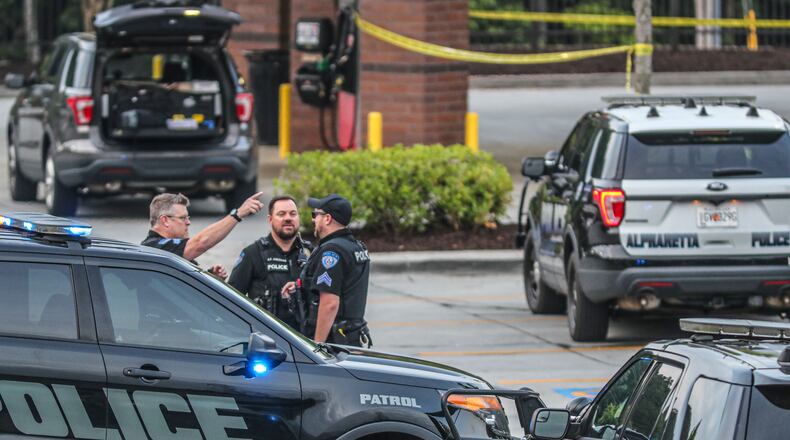Alpharetta Police Capt. Jakai Braithwaite knew last year he had to think big when his boss asked him to help fill some job openings for officers amid a nationwide hiring crunch. So, he proposed a trip to New Jersey.
After all, Braithwaite is a proud New Jersey native and has friends willing to help. Plus, he figured, officers in urban areas are more likely to move to smaller forces, where there is lower stress and cost of living.
“It’s all about selling you on the agency, selling you on the quality of life,” Braithwaite said, adding about Alpharetta: “Look at this city — it’s the Beverly Hills of the South.”
The trip was a success. Alpharetta hired nine officers from the Garden State. In two weeks, Alpharetta will embark on its second recruiting trip there. This time, those interested in 911 telecommunications will also be invited to apply.
Departments across the country are facing police officer shortages, partly because of increasing resignations and retirements. Nearly 6% police officer positions were unfilled at the beginning of last year, according to a Police Executive Research Forum survey of 179 departments in 38 states and Washington, D.C.
Meanwhile, out-of-state recruiting has become routine. But Alpharetta has put its own twist on it.
Braithwaite reflected on his department’s recruitment process and concluded it could be improved. By the time he was hired in Alpharetta, Braithwaite had paid to fly out to Georgia four times from New Jersey for an agility test, a medical screening and an interview. His solution was simple: Meet candidates where they are. So, Braithwaite and his colleagues traveled to Hasbrouck Heights, New Jersey.
“It hasn’t really been heard of that you would have an agency bring the process to you,” Braithwaite said. “But we can’t afford to fly people to us, so I thought: Let’s be competitive and take a page out of corporate America’s book and bring the process to them.”
The department received 14 applicants after it made that change.
“Before we would have like three applicants,” he said. “One or two might show up, one or two would fail.”
Such approaches have proven successful, but they don’t solve the overall policing shortage, according to Jorge Camacho, the policing, law and policy director for Yale Law School’s Justice Collaboratory.
The best way to tackle the problem, Camacho said, is by redistributing some of their responsibilities, including responding to mental health crises. Such calls could instead go to social workers, he said.
“We’re going to really see an increase in the utilization of these alternatives,” Camacho said, “in response to recruitment difficulties that, so far, seem persistent.”
About the Author
Keep Reading
The Latest
Featured



